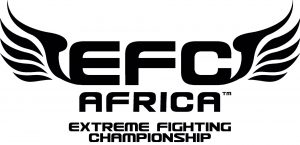The African Extreme Fighting Championship (EFC Africa) bantamweight champion is coming under heavy fire recently for popping positive for performance-enhancing drugs and doping allegations, catching a four year suspension and immediately dropping his title.

Nicknamed The Wolf, Demarte Pena is a mixed martial artist from Angola that had been competing in EFC Africa for a handful of years at the bantamweight level. Thought to be one of the most exciting up and coming talents in this regional EFC circuit, many believed that Pena was going to be able to establish himself as a real force internationally and eventually make it over to the much more lucrative the UFC circuit in the United States.
Originally popping positive after a urine sample was randomly collected by the South African Institute for Drug Free Sport in November 2016, Pena was originally handed down a relatively mild punishment – a written reprimand by the local governing body, with no other action taken against him.
However, after the sample was forwarded on to the W ADA, the international anti-doping agency for most every serious professional sport around the world, more than substance agents were found in the sample and he was immediately handed down a more significant punishment.
Pena obviously appeal the ruling, claiming that he was unduly punished twice for the same situation while at the same time claiming that he never used any performance-enhancing drugs knowingly and blamed the positive test cross-contamination.
The case moved through the appeals process rather slowly, at which point in time Pena was still eligible to continue fighting in EFC Africa tournaments.
In May 2015, Pena found his appeal held up after the South African Institute for Drug Free Sport discovered that there were across contaminants in both the androstenedione and androstenediol substances that he had tested positive for. Based off of this analysis, his suspension was rolled back completely and he was allowed to compete unfettered – even though that reprimand remained on his permanent record.
The WADA decided to get more involved with this specific case, unhappy with the way that Pena was treated during the appeals process and certain that there was no sign of cross-contamination whatsoever. The WADA began to suspect some kind of collusion or conspiracy behind the scenes to allow this exciting athlete to continue to fight, draw big crowds, and bring in more money for the EFC Africa circuit and contended that the suspension should still be upheld.
WADA officials appealed the suspension to the Court of Arbitration for Sport, presenting all the facts that they had access to and strongly rejecting the dismissal of the suspension that had been handed down previously.
The CAS decided to rule in favor of the WADA, also rejecting the decision made by the EFC to allow Pena to continue fighting even after he had tested positive. The CAS also believed that there was little evidence of cross-contamination, charged Pena with being responsible for intentionally doping, and also accused him of being unable to prove his innocence.
Along the way, the WADA presented two other samples of urine collected at the same time as the original contaminated sample and found them to have the same levels of performance-enhancing drugs in them. This proved to be the final nail in the coffin for Pena, with the CAS and WADA both moving to reinstate the four year suspension that had been handed down to Pena and vacated the year before.
Unsurprisingly, Pena is again appealing this decision though he will not be eligible to fight for EFC (or anyone else) until his appeal has concluded.


